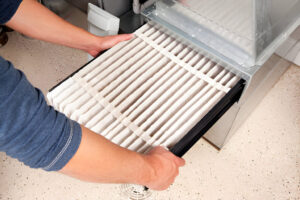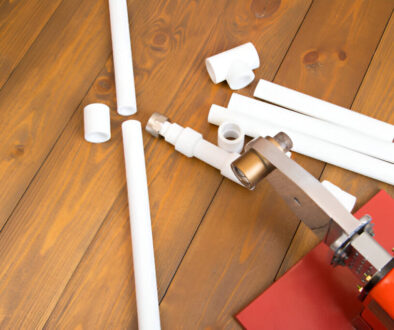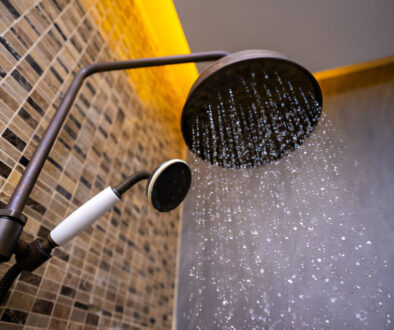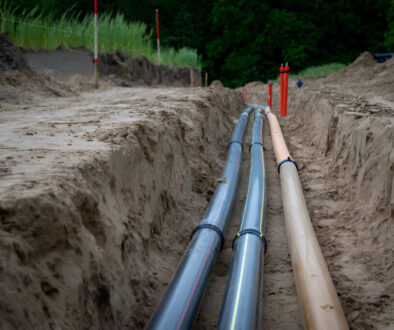How Often Should You Change Your Furnace Filter? A Complete Guide
Keeping your furnace in top shape requires regular maintenance, and one of the most crucial tasks is changing your furnace filter. This seemingly simple task can have a significant impact on your furnace’s efficiency, lifespan, and the air quality in your home. But how often should you change it? Let’s dive into everything you need to know.
What Does a Furnace Filter Do?
A furnace filter does more than just trap dust. It keeps your HVAC system running smoothly and ensures the air in your home stays clean. The primary function of a furnace filter is to catch dust, dirt, and other particles before they enter your system. Over time, a dirty furnace filter can clog, forcing your furnace to work harder, which leads to higher energy bills and potential damage to the system.
General Guidelines: How Often to Change Your Furnace Filter
So, how often should you change your furnace filter? The general rule is to replace it every 1 to 3 months. However, this depends on several factors like the type of filter you use, your home environment, and your furnace’s workload.
Type of Filter
The type of furnace filter you use directly impacts how often it needs to be changed. For instance:
- Fiberglass filters typically need to be replaced every month.
- Pleated filters can last up to 90 days.
- High-efficiency filters can last up to 6 months, but it’s still essential to check them regularly.
Factors That Affect How Often to Change Your Furnace Filter
Every home is different, so let’s break down the factors that can affect the frequency of your furnace filter changes.
Pets in the Home
If you have pets, you’ll need to change your furnace filter more often. Pet hair and dander can quickly clog a filter, reducing its efficiency. In homes with multiple pets, a monthly filter replacement is usually recommended.
Allergies or Respiratory Issues
For homes with individuals who suffer from allergies or respiratory issues, changing your furnace filter often is critical. In these cases, a high-efficiency air filter with a MERV rating of 11 or higher is ideal. These filters trap more particles from the air, ensuring better indoor air quality.
Smoking or High Indoor Air Pollution
If anyone smokes indoors or if your home is located in an area with high air pollution, your furnace filter will need to be replaced more frequently. Smoke and air pollution particles can build up in the filter, which can lead to reduced air quality.
Home Size and Furnace Usage
A larger home or a furnace that runs constantly (especially in winter) will require more frequent filter changes. During peak seasons, consider checking the filter once a month to ensure it’s not clogged. Make sure you have the right size furnace for your home to avoid overexerting the system.
Seasonal Changes
During times of heavy furnace use, such as winter, you may need to change the filter more frequently. During lighter use periods, like spring or fall, you may not need to change it as often.
The Importance of Changing Your Furnace Filter
Changing your furnace filter regularly has multiple benefits. Here are the key reasons to stay on top of it:
Better Air Quality
A clean filter helps keep the air in your home fresh by removing particles like dust, pollen, and pet dander. Regularly changing your filter ensures that you’re breathing clean air, which is especially important for households with children, the elderly, or anyone with respiratory issues.
Improved Energy Efficiency
A dirty filter makes your furnace work harder to circulate air. This extra strain not only leads to higher energy bills but also reduces the overall efficiency of your HVAC system.
Prolonged Furnace Lifespan
A clean filter reduces the wear and tear on your furnace. By regularly changing your filter, you can avoid unnecessary repairs and extend the lifespan of your furnace. In contrast, neglecting to change your filter can lead to major issues down the road.
Cost Savings
Replacing your furnace filter on time prevents costly repairs. It also improves efficiency, which can lower your monthly energy bills. The price of a new filter is minimal compared to what you might spend on a furnace repair or replacement.
How to Check if Your Furnace Filter Needs Replacement
Not sure when to change your filter? Here are a few signs that it’s time for a new one:
- Visible Dirt: If you notice a significant build-up of dust or dirt on the filter, it’s time for a change.
- Increased Energy Bills: A spike in your energy bill could mean your furnace is working harder than necessary due to a clogged filter.
- Reduced Airflow: If the airflow from your vents seems weaker than usual, your filter might be clogged.
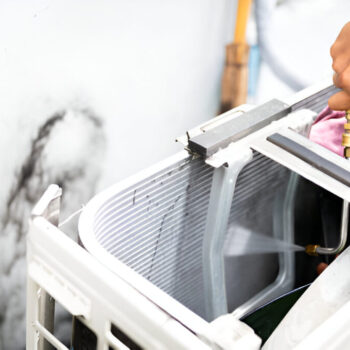
Different Types of Furnace Filters
Understanding the type of filter in your furnace can help you make the right choice. Here’s a quick breakdown of common furnace filter types:
- Fiberglass Filters: Inexpensive but need to be changed frequently (about once a month).
- Pleated Filters: More efficient and last longer, generally around 2-3 months.
- High-Efficiency Filters: Traps smaller particles, ideal for those with allergies. These filters can last up to 6 months but should still be checked regularly.
Common Mistakes Homeowners Make with Furnace Filters
Many homeowners make mistakes when it comes to furnace filters. Avoid these common errors:
- Not changing the filter regularly: Neglecting to change the filter can lead to poor air quality and system strain. We recommend regular furnace tune-ups to avoid bigger issues.
- Using the wrong size filter: A poorly fitting filter can let dust and debris bypass it, making the filter ineffective.
- Not checking the filter frequently: Even if your filter is supposed to last 90 days, it’s important to check it monthly, especially during heavy furnace use.
Stick to a Regular Filter Replacement Schedule
In summary, changing your furnace filter is essential for maintaining the air quality in your home and keeping your HVAC system running efficiently. Depending on the type of filter and factors like pets, allergies, and furnace usage, you may need to change it anywhere from every month to every three months. By staying on top of filter replacements, you’ll save money, breathe easier, and extend the life of your furnace.
If you’re unsure about the type of filter you need or how often you should change it, reach out to the team at Top-Notch Plumbing, Heating & Air. We’re here to help you keep your furnace running smoothly year-round.
